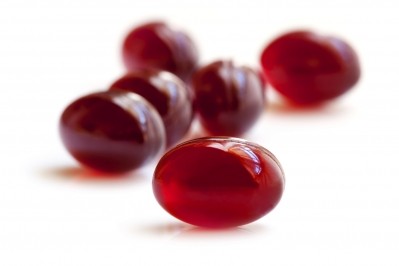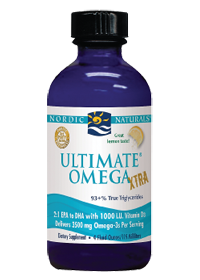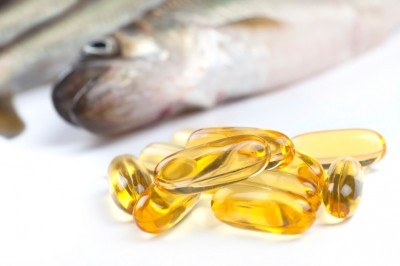Study explores how doses recommended on labels may (or may not) affect heart health
‘Not all omega-3 supplements are created equal, at least in terms of CVD risk reduction’, says new study

Data published in Lipids in Health and Disease indicated that recommended doses of fish oil with omega-3s in the concentrated triglyceride form produced the greatest cardiovascular disease risk reduction, compared with fish oil with omega-3s in the ethyl ester form, salmon oil with omega-3 in the (non-concentrated) triglyceride form, or krill oil with omega-3s in the phospholipid form.
“This study has shown that for segments of the population hoping to reduce their risk of developing elements of CVD, a judicious decision regarding the type and daily dose of omega-3 supplement will be important,” wrote Maggie Laidlaw, Carla Cockerline, and William Rowe from Nutrasource Diagnostic Inc. (NDI).
“It is clear that not all omega-3 supplements are created equal, at least in terms of CVD risk reduction.”
Not a head-to-head
The study is a comparison of the efficacy of the manufacturers' recommended doses of omega-3 fatty acids, and not a direct head-to-head comparison of the different forms at identical doses.
The study’s principal investigator, Dr Maggie Laidlaw, PhD, director of clinical trials at NDI, told us that the team would certainly like to do a follow-up study; however, this will depend upon whether we contract with a company or companies wishing to fund such a study. The current study was funded by Nordic Naturals, which provided all the products, including its own ProOmega concentrated triglyceride fish oil.
Commenting on the potential implications for formulators and marketers of omega-3 products, Dr Laidlaw added: “Ideally, any formulator wishing to make specific claims for their particular product(s) should undertake to fund a clinical trial that will, hopefully, confirm those claims.
“Although there may be a significant monetary outlay for a clinical trial, the marketing benefits that follow from being able to quote positive results from your trial can easily outweigh the cost of the trial, in terms of marketing superiority over products whose claims have not been confirmed by clinical trial results.”
Study details
Laidlaw, Cockerline, and Rowe conducted an open-label, randomized, cross-over study with 35 healthy subjects. The participants were randomly assigned to daily doses of omega-3s as recommended by the manufacturers on the product labels for 28 days. They were subsequently crossed over to another supplement.
The four products and their recommended doses were: Nordic Naturals ProOmega concentrated triglyceride fish oil (650 mg of EPA, 450 mg of DHA); Minami MorEPA ethyl ester fish oil (756 mg of EPA, 228 mg of DHA); Source Naturals ArcticPure krill oil (150 mg of EPA, 90 mg of DHA), and Wholemega Salmon oil triglyceride salmon oil (180 mg of EPA and 220 mg of DHA).
Results showed that all products significantly raised whole blood omega-3 fatty acid, with the Nordic Naturals product coming first, followed by the ethyl ester fish oil, the salmon oil, and finally the krill oil.
“Whole blood EPA percentage increase in subjects consuming concentrated rTG fish oil was more than four times that of krill and salmon oil,” wrote Laidlaw, Cockerline, and Rowe.
Heart health measures
The researchers also assessed cardiovascular risk using the OmegaScore, which tests a combined measure of EPA + DPA + DHA. High versus low levels are associated with a low or high risk of sudden death, respectively. Using this biomarker they were also able to extrapolate and estimate measures of heart disease risk, measures of the risk of death from fatal ischemic heart disease, and measures of the risk of sudden myocardial infarction.
Results from these analyses indicated that the vast majority of participants who consumed the concentrated triglyceride product had a reduced risk of the CVD-related conditions, except for the risk of death from fatal ischemic heart disease. None of the other supplements were associated with reductions in this measure, either.
Results also indicated that the ethyl ester doses were, “somewhat better than for the krill oil phospholipids or triglyceride salmon oil, but not as good as those of the concentrated fish oil triglyceride group”.
In addition, the majority of the participants who consumed the krill oil product at the dose recommended on the label did not experience a cardiovascular benefit, added Laidlaw, Cockerline, and Rowe.
“For the general population, the form and dose of omega-3 supplements may be immaterial,” they wrote. “However, given these results, the form and dose may be important for those interested in reducing their risk of cardiovascular disease.”
All are capable of helping
The study with its comparison of four different omega-3 forms on omega-3 levels may be the first of its kind, said Harry Rice, PhD, VP of regulatory and scientific affairs for the Global Organization for EPA and DHA Omega-3s (GOED). “As anticipated, all omega-3 forms raised omega-3 levels. What's not clear to me is if the differential change from baseline among the various forms is due to form or dosage.
“Theoretically, increasing the dose should increase the omega-3 levels over time. Assuming this is true, all omega-3 forms are capable of providing a similar cardiovascular disease risk reduction benefit(s).”
Source: Lipids in Health and Disease
13:99, doi:10.1186/1476-511X-13-99
“A randomized clinical trial to determine the efficacy of manufacturers' recommended doses of omega-3 fatty acids from different sources in facilitating cardiovascular disease risk reduction”
Authors: M. Laidlaw, C.A. Cockerline, W.J. Rowe
















